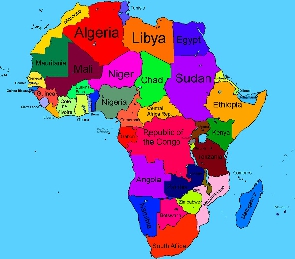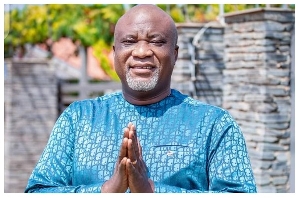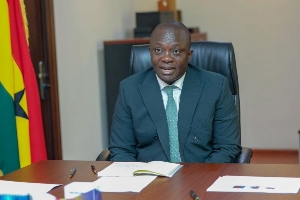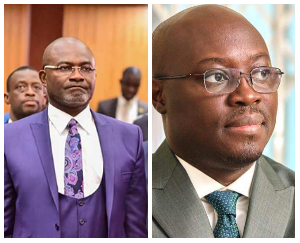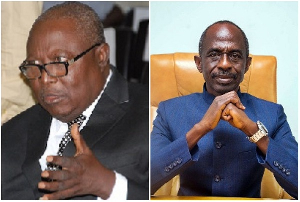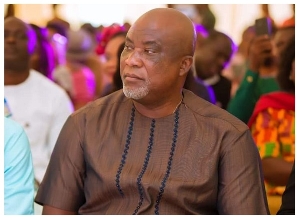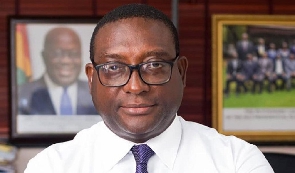A good number of people hold the belief that Ghana, like other African countries, needs some kind of benevolent dictator. This belief is premised on the false notion that democracy in Africa tends to stand in the way of economic development.
The call for a benevolent dictator to fix our economy can be likened to the call for a political messiah to clean our politics and fix our political system. Such calls are a wasted effort.
Anytime we fail to learn and internalize the foundational tenets of democracy, we call for an African brand of democracy that will supposedly blend Western liberal democracy with the African culture. The African culture of today still endorses the “an elder is always right” mentality and the “the boss can never be wrong” mentality but democracy does not.
The African culture literally forbids us to challenge or criticize our traditional rulers but the culture of democracy empowers us to protest government policies, sue the government or vote the government out of office.
Anytime we fail to institutionalize democracy, we call for a benevolent dictator. In our quest to explain away our failure, we make a case for a benevolent autocrat. This blinds us to the truth about our own shortcomings and, also, blinds us to the truth about the pivotal role that democracy has to play in the progress of Africa.
In fact, it predisposes us to discount the merits of democracy. We reject democracy as a Western political system that is alien to us and yet we long to travel to a Western country and enjoy the fruits of the said alien political system.
The rule of a benevolent dictator is a kind of personal rule. Personal rule frustrates efforts to build strong impersonal state institutions as the totality of the powers of the state is centralized in the dictator. Africa has seen the personal rule of dictators who literally dominate and control the entire government machinery.
A dictator might bully the Supreme Court into submission or pack the Supreme Court with his “favorites” so that they defer to him. This gets rid of judicial oversight. On the other hand, he may entice lawmakers with ministerial positions or intimidate parliament into silence so that parliament is reduced to a mere rubber stamp.
The Parliament of Ghana, for example, has long played second fiddle to the executive. A rubber-stamp parliament is like a moribund institution: it is as good as a suspended parliament. It is too weak to counteract the excesses or arbitrariness of the chief executive.
Again, it is so partisan that it cannot assert its independence and shoot down a bad policy from the executive. The members of a rubber-stamp parliament are like political dead woods: they are redundant since they are unable to perform their oversight responsibilities.
The idea of a benevolent dictator (say Lee Kuan Yew of Singapore) and the idea of a political messiah (like Plato’s philosopher-king) are, at best, abstract ideas. Since the beginning of time, no African strongman or dictator has ever built the likes of the “Asian tiger economies” of Singapore, Hong Kong, South Korea, and Taiwan.
If Africa were not a graveyard for democracy, we would certainly not be making repeated calls to install a benevolent dictator. In fact, the concept of a “benevolent dictator” can be said to be a contradiction in terms: it is a kind of oxymoron. A political leader who cares for only half of the people and tortures the other half cannot be said to be generous.
A mother who gives food to her children and, later, beats them up so that they throw up cannot be hailed as a good mother. A benevolent dictator, like any other dictator, is a wicked and stern ruler who sidesteps the law, denies the people their fundamental rights, and persecutes political dissenters.
In short, the label “benevolent dictator” translates literally into “a kind-hearted bad ruler.” This sounds a bit absurd.
The advocates of this theory argue that the stern resolve of a benevolent dictator to develop the economy endears him to the people. He is supposedly committed to the building of a buoyant economy in the state. This, they would have us believe, demolishes any argument advanced against him based on his authoritarian tendencies.
In other words, the prosperity, wealth, or high standard of living that the people stand to enjoy under his political leadership compensates for his despotic rule. Today, Paul Kagame of Rwanda is seen as one such textbook example of a benevolent dictator.
If this theory were true, Africa would not be the poorest continent on earth. Almost all dictators who have risen and fallen in Africa (be they civilian dictators or military dictators) have claimed that their cardinal objective was to pursue the economic well-being and prosperity of the populace and the economic development of the state.
In the end, the populace was chased away by poverty and political persecution: they became economic refugees, political prisoners, and political asylum seekers. If this theory were true, Ghana would be in the ranks of developed countries in the world. Kwame Nkrumah (the self-styled “president for life”) and Flt. Lt. Jerry John Rawlings (the self-appointed military ruler) is largely seen as a benevolent dictator except that they could not transform the economy of Ghana into an “Asian tiger economy”.
The pair of them are the longest-serving political leaders that Ghana has ever had. Nkrumah started off as a democratic leader but ended up as a maximum dictator. Rawlings started off as a stern military dictator but he swung from dictatorship to democracy and founded the Fourth Republic.
The adherents of this theory endeavor to find a way to circumvent the law and democratic principles in their quest for economic development: they seem to project economic rights above all other types of rights. Funnily enough, they forget that if the citizens are denied civil rights and political rights then it will be unlawful and, for that matter, a punishable offense to protest or criticize the bad economic policies of their own government.
The fact that a good public-spirited political leader is still subject to the law in modern states is proof positive that no political leader can be trusted with power. This notion underlines Baron de Montesquieu’s declaration that “Every man who holds power is inclined to abuse it.”
On his part, Lord Acton asserted that “Power tends to corrupt and absolute power corrupts absolutely.”
A dictator- whether benevolent or malevolent- is an embodiment of arbitrariness and oppression. Besides, in Africa, it is impossible to tell a benevolent dictator apart from a malevolent dictator. A deal with an African strongman or dictator is like a deal with “the devil”: it does not have a happy ending.
Dictators in Africa promise to create some kind of utopia for the ruled but the ideal of prosperity, economic development, and economic freedom turns into a dystopia of poverty, economic meltdown, financial meltdown, corruption, civil strife, civil war, and political violence.
Africa has, over the years, seen the reign of dictators who destroy both democracy and the economy. Once, a political leader starts on the path of autocracy, there is no telling what he will do next: an autocrat rules in an arbitrary fashion so that he can neither be restrained by law nor public opinion. This is the bane of the life of democracy in Africa.

